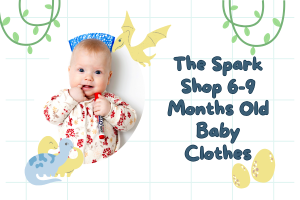How to Deal with Hair Loss in Your 20s

Losing your hair at any age can be distressing, but watching your hair fall out in your 20s can be traumatic. First, know that you’re not crazy; that’s young to experience hair loss. At the same time, it’s not entirely uncommon. You’re not alone, and what’s more, you’re not without resources. There are several options for dealing with hair loss, even in your 20s, and one of them will surely work for you.
1. Get Help
One immediate action you can take when you start noticing your hair falling out is to get medical help. When you’re dealing with something this upsetting, it helps to take action now. You can get minoxidil, a topical solution you apply to your scalp twice daily, relatively quickly in the mail. You don’t need a prescription, and many men see their hair regrowth in as little as three months. It is safe and effective and can give you power over your situation.
Finasteride is another medication many men take for hair loss. You’ll need a prescription to get this pill, and then you’ll take it once a day. Or you can choose to apply it topically. This FDA-approved medicine blocks your body’s production of dihydrotestosterone, a hormone that contributes to male pattern baldness. Clinical studies have shown excellent results after six months of use, making it worth considering. Also, minoxidil and finasteride can work together, so you can attack this problem from two sides.
2. Consider More Serious Measures
And the attack doesn’t have to stop there. If you try the topical solutions and the oral medication and don’t love your results, you still have options. Groundbreaking work is being done in the area of male pattern baldness. There are the more well-known “hair plugs,” which are now more commonly known as grafts. For modern hair transplants, small sections of the scalp with healthy hair follicles are transplanted to a balding area of the scalp.
Other surgical options include scalp expansion or scalp reduction. For a scalp expansion procedure, the doctor gradually stretches the hair-bearing portion of the scalp using a tissue expander. Then, the expanded skin is relocated to cover the balding area of the scalp. Hair growth occurs in the newly transplanted section. With scalp reduction, the surgeon removes a portion of the balding scalp, and the adjacent areas growing hair are brought together and sutured. This process reduces the bald area.
Both procedures are relatively painless, have a short recovery time, and don’t typically come with long-term side effects. They offer effective solutions for addressing baldness and allow for natural hair growth. If you choose to go with a surgical treatment, make sure to research reputable surgeons and budget for the procedure.
3. Review and Address Your Diet
Now, while you’re taking medications and considering surgical options, you can also make lifestyle changes that benefit your hair health. Diet can be a critical factor in matters of your hair. If you’re not getting enough iron, which carries oxygen to your hair follicles, that can interfere with hair growth. A deficiency of selenium and zinc can lead to poor scalp health too since they’re necessary for antioxidant protection, cell regeneration, and balanced hormones. Eating nuts, seeds, legumes, and leafy greens can help you get these essential vitamins and minerals.
While all these nutrients are essential for healthy hair, a diet without enough protein can also lead to significant hair loss. Hair is, after all, made of mostly protein — a protein called keratin. If you struggle to get enough protein each day through your normal diet, you might consider supplements. Aiming for a balanced diet of whole foods and plenty of lean protein is one of the best ways to promote healthy hair growth.
4. Manage Your Stress
Like diet, stress is closely related to hair loss, but the “why” has not always been well understood. Scientists have shown that chronic stress inhibits hair regrowth, but they’re only just discovering the underlying mechanisms. It seems that the stress hormone, called cortisol, has a negative impact on cells under the hair follicles. So, while everyone’s hair naturally falls out, chronic stress may make it fall out more quickly and stop it from growing back.
Of course, a little bit of intermittent stress won’t hurt you. In fact, it may help you stay motivated and driven. But daily, weekly, monthly, and ongoing stress can be detrimental to your overall wellness, including your hair health. If this chronic condition affects you, it’s time to take action to reduce it. Consider integrating cardiovascular exercise, better sleep, and meditation to reduce stress. It might also help to look into therapy for short and long-term relief.
5. Let It Go
Finally, when all else fails, remember that you have not failed. That’s right. Some people simply lose their hair naturally, and it does not have to be a negative experience. You can embrace being bald and still have a happy, joyful life. Dwayne Johnson, Taye Diggs, Bruce Willis, and Jason Statham have all proven that. Bald can be even sexier than having hair for some men.
At some point, you might find you’re stressing out over trying not to stress out. You may realize your attempts to keep your hair are making you more upset. In that case, allow yourself to let it go. Shave your head or buzz it super short and rock it like the celebrities and many other proud bald men. Often, so much of making a look work is about confidence.
The good news about hair loss is that there’s so much good news. You have multiple options, from medication to surgery, from changing your lifestyle to embracing the look. Plus you can’t really go wrong; they can all be good choices. In fact, even if improving your diet and exercising more doesn’t bring your hair back, it will do some good. It may even give you a killer bod to go with an awesome bald head!






